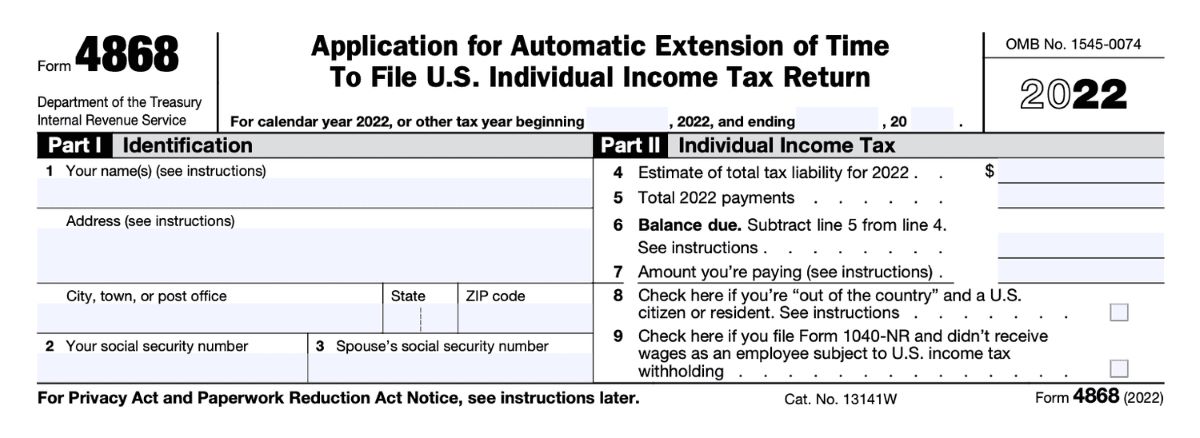Home>Finance>Why Is A Bank More Likely To Offer You Credit If You Have A Co-Signer With Good Credit?


Finance
Why Is A Bank More Likely To Offer You Credit If You Have A Co-Signer With Good Credit?
Published: January 11, 2024
Understand why banks are more inclined to provide credit if you have a co-signer with excellent credit. Explore the finance benefits of having a trusted co-signer to increase your creditworthiness.
(Many of the links in this article redirect to a specific reviewed product. Your purchase of these products through affiliate links helps to generate commission for LiveWell, at no extra cost. Learn more)
Table of Contents
- Introduction
- Understanding the Role of Creditworthiness
- Importance of Co-Signers in Credit Decisions
- Benefits of Having a Co-Signer with Good Credit
- Increased Confidence in Repayment Ability
- Mitigating Risk for the Bank
- Access to Better Loan Terms and Interest Rates
- Enhancing Overall Loan Approval Chances
- Conclusion
Introduction
When applying for a loan or credit, good creditworthiness is crucial for securing approval from a bank. Your credit history, income stability, and debt-to-income ratio are some of the factors that lenders analyze to assess your creditworthiness. However, if you have less-than-ideal credit, obtaining credit from a bank might prove challenging.
Fortunately, having a co-signer with good credit can significantly increase your chances of getting approved for credit. A co-signer is someone who agrees to take joint responsibility for the loan and makes the commitment to repay it if the primary borrower fails to do so. Banks view co-signers as an added layer of security, making them more likely to extend credit to individuals with lower credit scores or limited credit history.
In this article, we will explore the reasons why banks are more likely to offer you credit if you have a co-signer with good credit. Understanding the role of creditworthiness and the importance of co-signers in credit decisions will shed light on the benefits of having a co-signer with good credit in your financial journey.
Understanding the Role of Creditworthiness
Creditworthiness is a measure of your ability to manage and repay borrowed funds. Lenders want to ensure that they are lending money to individuals who are likely to pay it back in a timely manner. To assess your creditworthiness, banks review several factors, including your credit history, income stability, existing debts, and the length of your credit history.
A good credit history demonstrates responsible borrowing and repayment behavior. It shows that you have a track record of making timely payments and managing credit responsibly. Banks prefer borrowers with a proven history of paying back their debts on time, as it indicates a lower risk of defaulting on future loan obligations.
Income stability is another critical factor that lenders consider. A stable income indicates that you have a reliable source of funds to repay the loan. It gives banks confidence that you have the means to meet your financial obligations throughout the loan term.
Furthermore, your debt-to-income ratio plays a significant role in determining your creditworthiness. This ratio compares your monthly debt payments to your monthly income. Lenders use this ratio to assess your ability to handle additional debt. A lower debt-to-income ratio suggests that you have more disposable income available to repay the loan, making you a more attractive candidate to lenders.
Overall, a higher creditworthiness rating increases the likelihood of banks extending credit to you. It signifies that you have a lower risk profile and are more likely to repay the loan as agreed. However, if your creditworthiness is less favorable, having a co-signer with good credit can greatly improve your chances of obtaining credit from a bank.
Importance of Co-Signers in Credit Decisions
When evaluating a loan application, banks scrutinize the creditworthiness of the primary borrower. However, if the primary borrower has a lower credit score or limited credit history, the bank may view the loan as a riskier proposition. This is where the role of a co-signer becomes crucial.
A co-signer with good credit acts as a guarantor for the loan. By agreeing to co-sign, they take on equal responsibility for the loan repayment. Their strong credit history and financial stability provide added assurance to the lender, mitigating the risk associated with lending to someone with a less favorable credit profile. Including a co-signer helps to strengthen the overall creditworthiness of the loan application.
Co-signers are particularly important for individuals who are new to credit or have experienced credit setbacks in the past. For example, young adults who are just starting their financial journey may have limited credit history, making it difficult for them to establish creditworthiness. In such cases, having a co-signer can provide the necessary boost to obtain credit from a bank.
In addition, individuals who have faced financial challenges, such as bankruptcy or foreclosure, may find it challenging to secure credit. By including a co-signer with a strong credit history, these borrowers can leverage the co-signer’s creditworthiness to overcome their own credit obstacles and increase their chances of approval.
Moreover, co-signers can also help borrowers who have lower income levels or higher debt-to-income ratios. Lenders may be hesitant to approve loans for these individuals due to concerns about their ability to repay the loan. However, a co-signer with a steady income and lower debt burden can reassure the lender that the loan will be repaid on time.
Overall, the presence of a co-signer with good credit in a credit application strengthens the lender’s confidence in the borrower’s ability to repay. It provides additional security and mitigates the potential risks associated with lending to individuals with lower creditworthiness or higher risk profiles.
Benefits of Having a Co-Signer with Good Credit
Having a co-signer with good credit can provide numerous benefits when seeking credit from a bank. Let’s explore some of the advantages:
- Increased Confidence in Repayment Ability: Banks have greater confidence in lending to individuals with a co-signer who has a strong credit history. The co-signer’s creditworthiness offers assurance that the loan will be repaid on time, reducing the lender’s concerns about default.
- Mitigating Risk for the Bank: From a lender’s perspective, a co-signer acts as an additional layer of security. If the primary borrower fails to make payments, the bank can turn to the co-signer to fulfill the repayment obligations. This reduces the bank’s risk and increases the likelihood of extending credit to someone with lower creditworthiness.
- Access to Better Loan Terms and Interest Rates: With a co-signer who has good credit, you may qualify for better loan terms and interest rates. Banks may be more inclined to offer competitive rates to borrowers with a co-signer because they view the risk of default as lower.
- Enhancing Overall Loan Approval Chances: When you include a co-signer with good credit on your loan application, it strengthens your creditworthiness in the eyes of the lender. This can significantly increase your chances of loan approval, especially if your own credit history is limited or less favorable.
- Opportunity to Build or Rebuild Credit: For individuals who are new to credit or looking to improve their credit standing, having a co-signer can be beneficial. Making timely payments on the loan can help establish a positive credit history or repair a damaged one, as long as you both fulfill your obligations responsibly.
It’s important to note that co-signing carries responsibilities for both the primary borrower and the co-signer. The primary borrower must make payments regularly and maintain a good relationship with the co-signer to avoid any strain in the financial arrangement. The co-signer, on the other hand, should carefully consider their decision to co-sign, as their credit will be affected if the primary borrower defaults on payments.
In summary, having a co-signer with good credit can provide several benefits when seeking credit from a bank. It increases confidence in your repayment ability, mitigates risk for the bank, improves loan approval chances, and may result in better loan terms and interest rates. However, both the borrower and the co-signer should understand their shared responsibilities before entering into this financial arrangement.
Increased Confidence in Repayment Ability
One of the primary benefits of having a co-signer with good credit is that it instills increased confidence in the lender regarding your repayment ability. When you have a co-signer with a solid credit history vouching for your loan, it reassures the bank that the loan will be repaid on time.
Lenders consider credit history as a strong indicator of how individuals handle and manage their financial obligations. If you have a less-than-ideal credit history or limited credit experience, banks may view you as a higher risk borrower. However, by including a co-signer with a strong credit record, you tap into their positive credit history and demonstrate your commitment to repaying the loan responsibly.
A co-signer with good credit has a proven track record of making timely payments, keeping debt levels manageable, and exhibiting responsible financial behaviors. This track record provides assurance to the lender that, even if your creditworthiness is not as strong, you have the support of someone who has demonstrated financial responsibility.
The presence of a co-signer with good credit reduces the perceived risk for the lender, as they view the loan as less likely to default. As a result, lenders are more inclined to approve the loan and offer you credit opportunities that you might not qualify for on your own.
Furthermore, this increased confidence in your repayment ability can lead to other favorable outcomes. For instance, banks may be more willing to extend larger loan amounts or offer more flexible repayment terms if they have confidence in your ability to meet your financial obligations.
However, it is crucial to remember that being a co-signer comes with its own set of responsibilities. The co-signer is equally responsible for repaying the loan if you, as the primary borrower, are unable to fulfill your obligations. Therefore, it is essential to maintain open communication with your co-signer and ensure that both parties are committed to meeting the loan requirements.
Ultimately, having a co-signer with good credit elevates the lender’s confidence in your repayment ability. It showcases your dedication to meeting your financial responsibilities and significantly improves your chances of being approved for credit that may have been otherwise difficult to obtain.
Mitigating Risk for the Bank
One of the main reasons why banks are more likely to offer you credit when you have a co-signer with good credit is because it helps mitigate risk for the lender. As a co-signer, the individual with good credit is equally responsible for repaying the loan if the primary borrower is unable to do so. This added layer of security provides reassurance to the bank, making them more comfortable extending credit to individuals with lower creditworthiness.
By having a co-signer, the bank has an alternative source of repayment if the primary borrower defaults on the loan. This reduces the risk of financial loss for the lender and increases the likelihood of loan repayment. In the event that the primary borrower is unable to make the required payments, the co-signer can step in and take over the responsibility, ensuring that the lender does not incur any significant losses.
Additionally, a co-signer with good credit signifies that there is someone who is financially stable and has a proven track record of meeting their financial obligations. This demonstrates to the bank that if the primary borrower encounters any financial difficulties, there is a higher chance of the loan being repaid in full. The co-signer’s creditworthiness acts as a form of insurance for the lender, reducing the perceived risk associated with lending to someone with lower creditworthiness.
Furthermore, the presence of a co-signer may provide the bank with a sense of reassurance regarding the borrower’s commitment to repaying the loan. The fact that the borrower has someone willing to co-sign indicates that they have the support and backing necessary to fulfill their financial obligations. This can alleviate concerns about the borrower’s commitment to repayment and increase the level of trust the bank has in the borrower’s ability to manage the loan responsibly.
Ultimately, by including a co-signer with good credit, the bank can minimize its risk exposure and increase the likelihood of loan repayment. The co-signer acts as a safeguard, ensuring that there is an alternative source of repayment if the primary borrower encounters any difficulties. This reduced risk for the bank makes them more inclined to offer credit to individuals who may not meet the creditworthiness requirements on their own.
Access to Better Loan Terms and Interest Rates
Having a co-signer with good credit not only increases your chances of getting approved for credit but also opens the door to better loan terms and interest rates. Banks are more willing to offer favorable terms to borrowers with a co-signer, as the presence of a creditworthy co-signer lowers their perceived risk.
When you have a co-signer with a strong credit history, it demonstrates to the lender that there is an additional responsible party involved in the loan repayment. The co-signer’s good credit acts as a form of collateral, assuring the bank that the loan is more likely to be repaid as agreed. As a result, lenders may offer more favorable loan terms, such as lower interest rates, longer repayment periods, and higher borrowing limits.
Interest rates, in particular, have a significant impact on the overall cost of borrowing. With a co-signer who has good credit, you may qualify for lower interest rates that reflect their creditworthiness. This can result in substantial savings over the life of the loan, making it more affordable and easier to manage your repayments.
Additionally, having access to better loan terms can provide greater flexibility and financial stability. With longer repayment periods, you can spread out the loan payments over a more extended period, reducing the monthly burden and making it easier to manage your cash flow. Higher borrowing limits can also give you the opportunity to secure the necessary funds for larger expenses, such as buying a home or financing a business venture.
It’s important to note that the extent to which you benefit from better loan terms and interest rates may vary depending on your specific circumstances and the policies of the lending institution. However, having a co-signer with good credit gives you a stronger negotiating position and increases the likelihood of securing more favorable loan terms compared to if you were applying on your own.
Remember that the responsibility for repaying the loan ultimately falls on both the borrower and the co-signer. Therefore, it’s crucial to maintain open communication with your co-signer and ensure that you both understand the terms and obligations associated with the loan.
In summary, having a co-signer with good credit provides not only increased approval odds but also access to better loan terms and interest rates. The co-signer’s creditworthiness reduces the lender’s perceived risk, enabling them to offer more favorable borrowing terms. This can result in significant cost savings and greater financial flexibility throughout the loan repayment period.
Enhancing Overall Loan Approval Chances
Having a co-signer with good credit can significantly enhance your overall loan approval chances. When applying for credit, having a co-signer can bolster your creditworthiness in the eyes of the lender, increasing the likelihood of your loan application being approved.
When assessing loan applications, lenders consider various factors such as credit history, income stability, and debt-to-income ratio. If you have a limited credit history or a less favorable credit score, it may be challenging to meet the lender’s creditworthiness requirements. However, by including a co-signer with a strong credit history, you can overcome these hurdles.
The presence of a co-signer with good credit provides the lender with an additional guarantee that the loan will be repaid. The co-signer’s creditworthiness acts as a form of reassurance for the lender, mitigating their concerns about lending to someone with lower creditworthiness. This increased assurance can sway the decision in your favor and result in a higher probability of loan approval.
In addition to increasing the chances of approval, having a co-signer can also improve the terms of the loan. Lenders may be more willing to offer more favorable interest rates, repayment terms, and borrowing limits when a creditworthy co-signer is involved. This not only makes the loan more affordable but also gives you greater financial flexibility in managing your repayments.
Moreover, including a co-signer may help you qualify for loan programs or products that you may not have been eligible for on your own. For instance, if you are a first-time borrower or have a limited credit history, having a co-signer with a strong credit profile may allow you to access specialized loan programs or products that are designed for individuals with established credit backgrounds.
However, it’s important to keep in mind that being a co-signer involves shared responsibility. Both the borrower and the co-signer are equally responsible for the loan repayment, and any missed payments or defaults can negatively impact both parties’ credit scores. Open communication and trust between the borrower and the co-signer are essential to ensuring a successful loan arrangement for both parties involved.
In summary, having a co-signer with good credit enhances your overall chances of loan approval. Their creditworthiness provides the lender with an additional layer of assurance and increases your perceived creditworthiness, making you a more attractive candidate for borrowing. In addition to improving approval odds, a co-signer can also lead to more favorable loan terms and eligibility for specialized loan programs. However, it’s crucial for both the borrower and the co-signer to understand their shared responsibilities and maintain open communication throughout the loan repayment process.
Conclusion
Having a co-signer with good credit can significantly increase your chances of obtaining credit from a bank. A co-signer acts as a guarantor for the loan, offering an added layer of security for the lender. By including a co-signer with a strong credit history, you enhance your creditworthiness and demonstrate your commitment to repaying the loan responsibly.
When you have a co-signer with good credit, it instills greater confidence in the lender regarding your repayment ability. Their creditworthiness provides assurance that the loan will be repaid on time, increasing the likelihood of loan approval. This increased confidence in your repayment ability can lead to more favorable loan terms and interest rates, making the loan more affordable and easier to manage.
Furthermore, having a co-signer mitigates risk for the bank, as they have an alternative source of repayment if the primary borrower defaults. This reduces the lender’s exposure to financial loss and makes them more willing to extend credit to individuals with lower creditworthiness or higher risk profiles.
In addition, including a co-signer with good credit enhances your overall loan approval chances. Their presence strengthens your credit application and increases the likelihood of meeting the lender’s creditworthiness requirements. This can be particularly beneficial for individuals who are new to credit, have limited credit history, or have experienced credit setbacks in the past.
Overall, having a co-signer with good credit provides numerous benefits when seeking credit from a bank. It improves your chances of loan approval, provides access to better loan terms and interest rates, and enhances your overall creditworthiness. However, it’s essential to carefully consider the responsibilities and implications associated with co-signing and maintain open communication with your co-signer throughout the loan repayment process.
Remember, while having a co-signer can be advantageous, it’s still important to work on improving your own creditworthiness over time. Building a strong credit history and improving your financial habits will eventually enable you to qualify for credit on your own.














